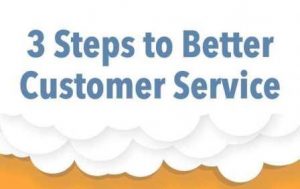How to Configure Your Startup’s Marketing Team

Marketing, public relations, and social media are all crucial tools for any new startup. Though the distinctions among the three are quite nuanced, learning how to utilize each effectively is crucial to building the buzz necessary for any startup. But first, it’s important to understand the differences before assessing who does what.
Marketing is the process of selling a service or product by communicating it’s worth to consumers. You put a “spin” on the product, giving it a certain perception to the consumer. Through marketing, you form the image the public has of the company or a product.
PR (Public Relations) is the management and the distribution of information between organizations and consumers or clients through the media. After putting a certain spin on the product or company through marketing, the next step is to figure out the ways in which to distribute that information, which is where PR comes in. The ultimate goal is receiving exposure from audiences for maximum impact.
Social Media Management, as the name suggests, is using online platforms for social interaction as a place to share information and ideas. The public today is most accessible through social media, so the opportunity to convey information to a large, active audience can be capitalized through these platforms. Social media is the most successful vehicle for marketing and PR in today’s marketplace.
The next important question is who does what? Can one person take on all three? As your startup grows, you’ll want to continue to evaluate who is best suited for which task, but in the earliest days of your business when your team is still limited to just a handful of people, these are my suggestions.
Marketing = Entire Team
The strategy for marketing and branding the product should be established by the entire team early on. From developers to designers, each should have a say in what the voice of the brand is. Most startups are only 2-3 people when starting out, so this process likely won’t entail a company-wide poll, but all members should agree on what the marketing angle of the product will be. Additionally, all team members should understand the value of the product and be able to communicate it clearly.
Social Media = One Person
Having one main person handle the social media is a good idea. While other people can give input, designating one person on the team to oversee everything ensures that you’re not posting too much or too little, or in a way that is inconsistent with the brand’s voice or personality. Starting out, multiple team members can do the actual posting, but it’s important to designate one person to monitor the networks, answer questions, and make sure posts are strong.
PR = CEO (at first)
When starting out, the spokesperson of your brand will probably be your CEO, who is usually the co-founder that’s the most vocal and comfortable talking to the media and comfortable taking on the overall management role for the future. PR entails reaching out to media via email or phone or talking to reporters at conferences, so whoever is the talkative, outgoing co-founder should be your designated PR person.
Having everyone do everything doesn’t typically work out well when starting out, as it makes it easy for things to fall through the cracks. Designating clear roles from the beginning can help make sure all tasks are done and allows for scalability as your business’s size grows. When in a small team like a startup, it’s important each individual knows what they are doing and how they are doing it.
Media today is in a transition period given the newness of social media, so companies are still figuring out the best ways to use the digital tools it provides. Trial and error is still largely the name of the game here, so even if you’re not an expert in any of these three areas, that needn’t get in the way of your ability to effectively promote your brand. Don’t be afraid to do some figuring it out as you go, because that’s part of the fun of a startup.
Business Articles | Business 2 Community
(252)
Report Post






